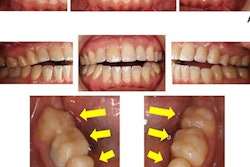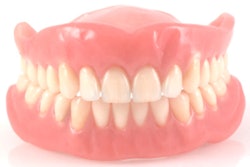
Are you practicing while under the influence of "fuzzy thinking" -- basing dental treatment decisions on opinions rather than facts? Clinicians who do so may be putting patients at risk, according to a perspective published August 8 in the Journal of Oral and Maxillofacial Surgery.
Whether it is unintentional or laziness, basing dental treatment decisions on uncorroborated opinions instead of facts can lead to poor clinical judgment, producing unwanted consequences for patients and eventual anguish for clinicians, wrote author Dr. Jeffrey Posnick, professor of orthodontics at the University of Maryland College of Dental Surgery in Baltimore and professor of oral and maxillofacial surgery at Howard University College of Dentistry in Washington, DC.
"As surgeons, we owe it to our patients to apply first principles critical thinking before making judgments, providing advice, or giving recommendations to our patients," Posnick wrote.
Fuzzy thinking is communicating with little regard for the truth, proven facts, or established knowledge. Some clinicians may fall into this trap and tell people what they want to hear for the sake of expediency. Others may be unconsciously motivated to get a patient to agree to a certain procedure or to appear more competent than their colleagues, he wrote.
Whatever the case, clinicians should be using "first principles" reasoning, an approach that involves actively questioning every assumption that people think they know about a situation, and then creating new solutions instead of accepting "analogy thinking." Throughout history, people from Greek philosopher Aristotle to Tesla CEO Elon Musk have used first principles reasoning to make decisions, according to the perspective.
Since a lapse in judgment can easily complicate a patient's postoperative recovery and perceived satisfaction from a procedure, clinicians should strengthen their critical thinking skills and apply them.
For example, it's not rare for orthodontists to go into "immediate isolated treatment mode" when a parent brings a child with a jaw deformity to a practice. Instead of looking closely at the patient's condition and thinking through the pros and cons of certain treatment options, an orthodontist's approach will be based on analogy thinking.
In these situations, clinicians also may use statements, including "insurance no longer covers orthognathic surgery" or "the surgery is too expensive." However, a critical analysis of government and insurance industry statistics and existing data do not support those platitudes, Posnick concluded.
Therefore, "as consumers of information in everyday life we would do well to sharpen our reasoning skills," he wrote.




















